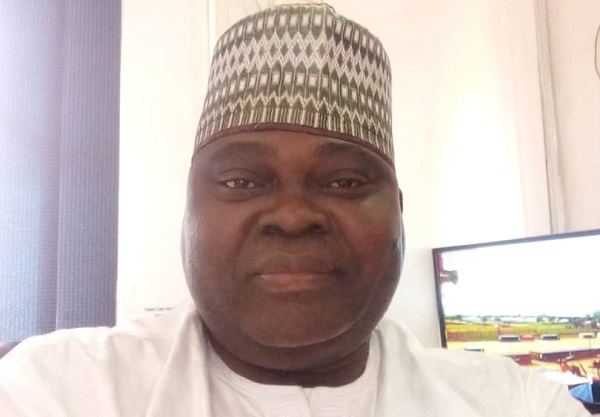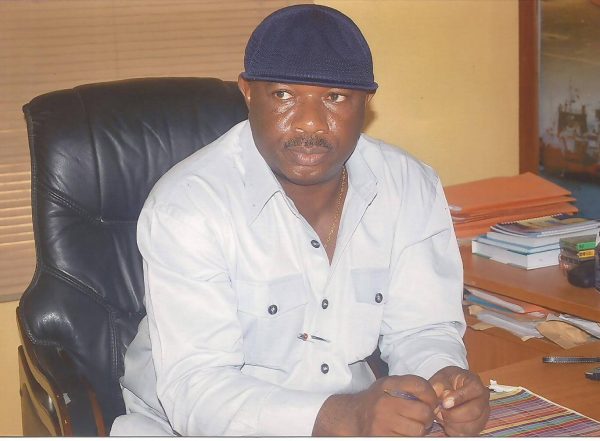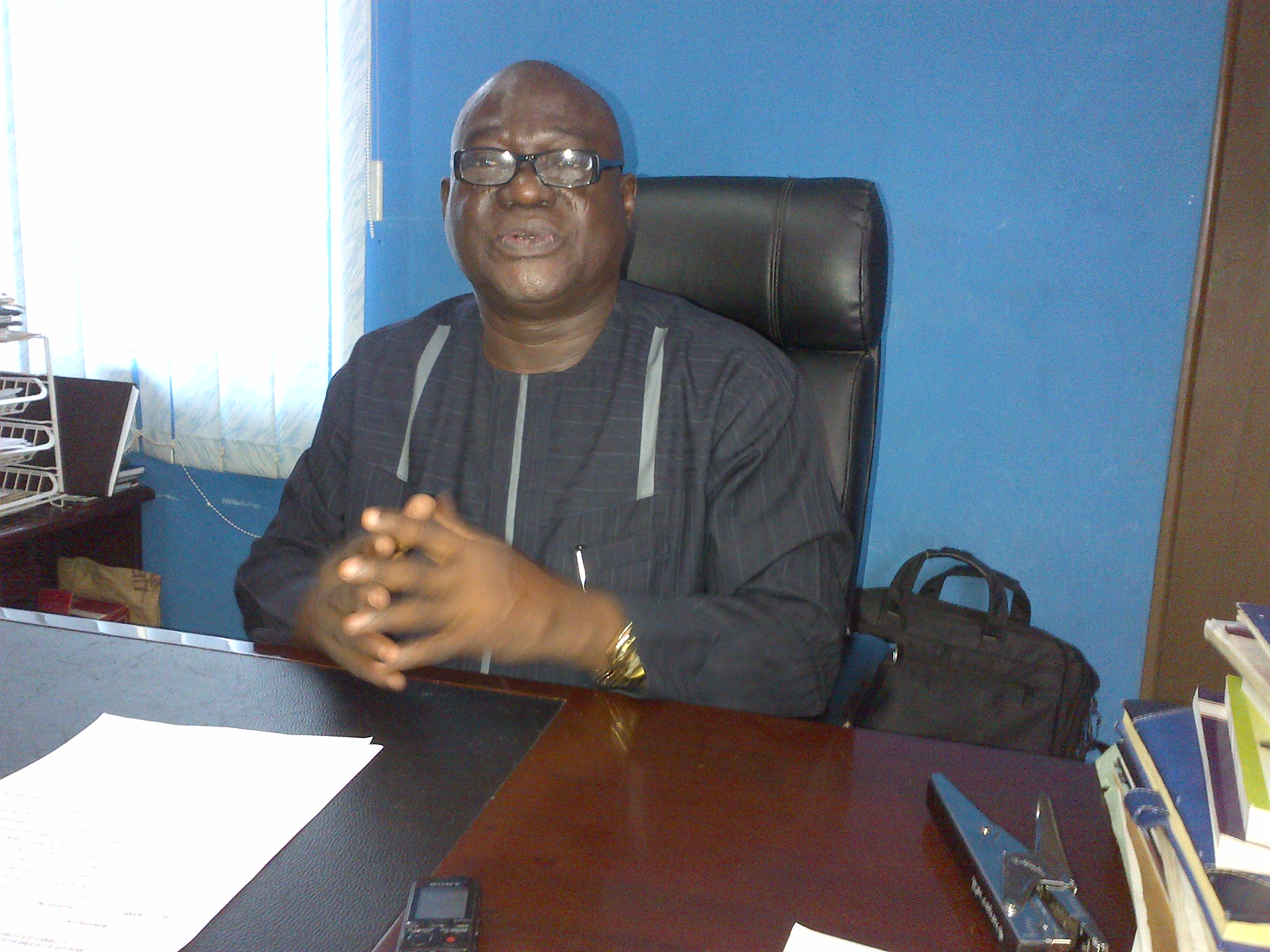I CARE INTERVIEW
We Lack Resolve To Follow Due Process For Export – NEXIM Bank Boss

Mr. Bashir Wali is the Acting Managing Director of the Nigerian Export-Import (NEXIM) bank. In this interview with MMS Plus he bares his mind on several pertinent issues affecting export in Nigeria, the roles of financial institutions, private sector organizations as well as the government agencies and he also highlights the activities of NEXIM bank in facilitating export despite the current economic recession.
Last week, MMS Plus published an excerpt of this interview as a news story with the title: “ Exporters Can’t Access CBN N500bn Export Funds—NEXIM Bank Boss,” with the understanding of the answers to the questions asked, but it was rather misunderstood by a section of the readers. That nuances of the interview was never intended, and as such MMS plus was surprised at the meanings ascribed to the journalistic deduction made from the reality of the interview.
While we serve the interview as conducted, we are sorry for the feelings injured.
Excerpts:
What is your assessment of this export event organized by the Nigerian-American Chamber of Commerce (NACC) and Fidelity bank?
These programmes have been long overdue and it is worthy of emulation to other organized private sector associations. The Nigerian-American Chamber of Commerce (NACC) has organized two great programmes within a period of two weeks on funding exports. NACC is rising to the expectation to meet the demands and better the Nigerian export sector.
How would you appraise the commitment and willingness of financial institutions towards supporting exports, especially for new companies?
As far as the issue of export is concerned, Nigerians have been asleep. Oil and its revenue had created so much comfort for us that we failed to see the opportunities and advantages in other sectors to improve and use those sectors. Nigerian banks are no different. It is the issue of the moment that they focus upon because they have to make money from it. If the current circumstances have created an enabling environment for finance institutions to shift focus to the export sector, then it is a good thing. There are always early starters just as there are also late starters; somebody will have to chart the course for others to follow. Fidelity bank is charting that course because they are revitalizing the export sector. Some other banks have also taken up the issue because we have held several sensitization programmes with several commercial banks so that we can improve their capacity and knowledge about this export sector. So, it is a gradual process.
Our seaports lack preservation facilities for certain goods which are perishable and this negates export of such items. How do we address this?
The port is an entry and exit point. It is not the responsibility of the port to provide these facilities. The expectation is for private sector initiatives to be developed. So, private individuals can invest and provide storage facilities and other facilities. Agents that have associations can also invest in this as well as other private sector associations.
Looking at other developed nations of the world, proactively, how can we begin to drive non- oil exports in Nigeria?
We are already doing so by taking the steps we are taking. The government is playing a key role by providing intervention funds and the cost is below 50% of borrowed funds in the country. Facilitation and capacity building is also been engineered by relevant government agencies such as the Nigerian Export Promotion Council (NEPC), Nigerian Export- Import (NEXIM) bank, among others. The organized private sector are also taken up the initiative such as the Nigerian-American Chamber of Commerce (NACC) by organizing this kind of conference and financial institutions are not left behind as you can see Fidelity bank also canvassing, creating awareness and building capacity both internally and also for the general public to show the potentials in the sector and how to exploit them.
Considering the economic recession, tell us about the current state of activities at the NEXIM bank. How has NEXIM fared?
Since the economic crises started, what we set in process was actualized with the approval of both the funding schemes and the guidelines for the export stimulation facility and the rediscount and refinancing facilities. These guidelines were finally approved in June this year.
Subsequently, from June till date we have gone around organizing rigorous sensitization campaigns. We have collaborated with organized private associations such as the Manufacturers Association of Nigeria (MAN) to hold sensitization programmes. We have held them in Lagos as well as Abuja and they were anchored and financed by the Fidelity bank. We have had several lectures and presentations at different for a organized by various associations like NACC to build awareness and sensitize the general public on the opportunities that are available and the processes for the disbursement of this intervention fund.
The Central Bank of Nigeria (CBN) has disbursed N500billion intervention fund for exporters. How can Nigerians access it?
Go to the commercial banks and ask. They would furnish you with all the necessary requirements and guidelines. The N500billion fund is accessed through the commercial banks.
How much of this N500billion has been disbursed or what percentage has been given out?
The process has just started. In the paper I presented earlier, I made recommendations with respect to the applications that meet the requirements with the complete documentation. The Central Bank of Nigeria (CBN) would also have to endorse it before the money is given out.
When are we going to see the fund disbursed?
There is a set time-limit for every aspect of the process. As I stated earlier, from the moment of submission of complete documentation, that is, the time a request is submitted to NEXIM bank, we have a period of 20 days between the time of approval and the time of disbursement.
Since the disbursement in June, no one has benefitted from the scheme. Don’t you think that bureaucracy has become a major challenge to accessing the fund?
It takes time for the banks that are disbursing to build capacity and it takes time for the banks to create awareness about the funds for the beneficiary public from where the customers will come with interesting proposals that are bankable.
In most cases it is not at the initial stage that one can come up with a proposal which can pass the litmus test. Even at the first stage, you will have to meet the guidelines and all the documentations which is why some applicants have fallen short of the required guidelines. Hence, they had to be backloaded for the commercial banks to take necessary steps and contact the customers to rectify the deficiencies. Everything has a due process especially when it comes to the issue of processing and granting funds.
How important is the African Growth and Opportunities Act (AGOA) to Nigerian exports?
AGOA is an Act of the United States’ legislature. It is an Act which provides opportunities for developing countries like Nigeria to take advantage to export goods to the United States’ market. So far, the impact of that Act has been minimal and this is because the opportunities have not been exposed sufficiently. What we are doing here today is to expose these opportunities and show Nigerians how they could take advantage of these opportunities to maximize the foreign exchange of the nation through export.
What aren’t we getting right as a nation with regards our approach to exports when compared to other developed countries?
I think we lack the resolve to follow due process. We need to have that resolve and avoid cutting corners or taking shortcuts. Our primary area of interest at NEXIM bank is to improve the level of export generally and to improve the ability and standards of Nigeria entrepreneurs to meet up to the quality and standards of the internation benchmark.
You talked about transport and transshipment in terms of Nigeria having a big advantage in export. Please throw more light on this.
I made reference to shipping and intra-African trade particularly trade unions in the West and Central African region. If you look at the Gulf of Guinea, from the Democratic Republic of Congo right down to Mauritania, some of the ports are deep while others are shallow ports. If you shipping bulk cargo through a ship with deep draft, it can only go to specific ports which can accommodate it in West Africa. So, if we are talking about moving goods from port to port along the corridors of the West and Central African coastal areas then we must have ships which are suitable for port to port movement in terms of the draft of the vessel. Most of the major shipping companies come with large ships that take goods in bulk. They would move these goods from here and take them to their offices or the port of the flag country, transship to smaller vessels and return back. For a trader moving goods such as finished products from Nigeria to Gambia for instance, it would take twice the duration it should ordinarily take. This elongates the turn-around time and reduces the profitability, but if you have a ship that can take goods from Nigeria to other African countries such as Togo, Ghana, Cameroon and Gambia, and then take the same route back to Nigeria, that ship would be able to come back faster and be ready to go on another voyage.
Therefore, we would spend less than when we use ships of major companies and the turn-around time would be faster because there would be no transshipment. This gives us an added advantage and it is cheaper and safer than moving goods via the roads. The waiting period at each border post would also be eliminated because at every border post you have to stop and go through their bureaucratic processes.
One issue reechoed by several speakers throughout the conference was packaging. How important is this to exporting for Nigeria?
Packaging is everything. If you don’t properly package your goods, it may not meet the requirements of the destination and this means rejection. Hence the exporter loses his money.
In a similar conference organized by the Nigerian Shippers Council (NSC) this year, one of the submissions at the meeting was the need to inform young people about the massive opportunities in the export sector. How significant is this to transforming the export sector?
Education has no barriers. Age is not a barrier because from the oldest to the youngest, one still undergoes the learning process. NEPC, NEXIM and other agencies of government as well as the organized private sector are all in this together. This export campaign is what I will call ‘Project Nigeria’ and it is not something that one arm or one person can do. We have to do it collectively. As a journalist, you equally have a significant role to play by disseminating what happened here to ensure that it gets to people who may even be in school.
The export project in Nigeria is for all of us. Out of every challenge, there is always an opportunity. The opportunity has presented itself; it is left for us to take steps to remedy the omissions and pitfalls of the past. We cannot rely solely on the government for this, rather it requires collective efforts. Government is composed of people, so all Nigerians would have to play a role for us to forge ahead and make sure export succeeds.
By Kenneth Jukpor






